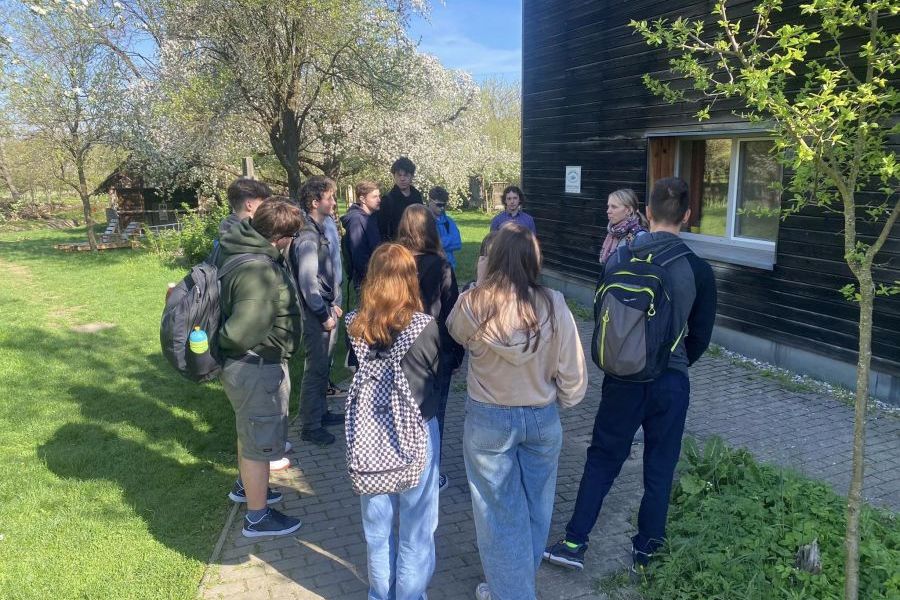
The problem
A significant challenge facing many communities today is the lack of public awareness regarding sustainable municipal operations. Many people are unaware of the detrimental impacts of unsustainable behaviors and the benefits of adopting environmentally friendly practices. This gap in knowledge often results in a limited interest in supporting and implementing greener policies and strategies at the local level.
The solution we used
The primary goal of this activity is to enhance students' understanding of sustainable practices within municipal operations, using the village of Hostětín as a case study. This project aims to:
- Foster a positive attitude towards sustainable municipal operations.
- Educate students on the principles and benefits of sustainability in local governance.
- Inspire students to actively engage in promoting sustainability within their own communities.
Implementation
The educational activity is structured into several key components, each designed to provide a comprehensive understanding of sustainable practices through hands-on learning and reflection.
- Excursion to Hostětín
- Overview: Hostětín is a prime example of a municipality that has successfully integrated economic and environmental sustainability into its operations. Students will visit Hostětín to explore various sustainable practices firsthand.
- Key Areas of Focus:
- Orchards: Students will learn about the management of local orchards, which contribute to the village’s sustainability and biodiversity.
- Constructed Wetlands for Wastewater Treatment: The excursion will include a visit to Hostětín’s innovative root water treatment system, an eco-friendly alternative for wastewater management.
- Municipal Heating Plant: Students will gain insights into how Hostětín harnesses renewable energy to provide sustainable heating solutions for the community.
- Report Production
- After the visit, students will be tasked with writing a comprehensive report that summarizes their observations and experiences. The report should reflect on:
- The sustainable practices observed during the excursion.
- The potential applications of these principles in their own communities.
- Personal reflections on the importance of sustainability.
- After the visit, students will be tasked with writing a comprehensive report that summarizes their observations and experiences. The report should reflect on:
- Discussion and Follow-Up Activities
- Classroom Discussion: Following the report, students will participate in class discussions to share their insights and deepen their understanding of sustainability.
- Creative Projects: Students are encouraged to express their learnings through various formats, such as:
- Writing essays on the importance of sustainable municipal operations.
- Designing community projects that promote environmental sustainability.
- Proposing practical ideas to implement sustainable practices in their neighborhoods.
Expected Outcomes
By engaging in this activity, students will develop a clearer understanding of how municipalities can operate sustainably and why it is crucial. They will gain practical knowledge and inspiration to advocate for and contribute to sustainable practices within their own communities. This hands-on experience aims to empower the next generation to be proactive in addressing environmental challenges at the local level.
